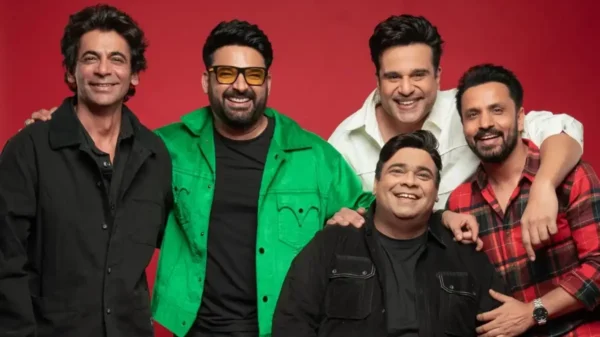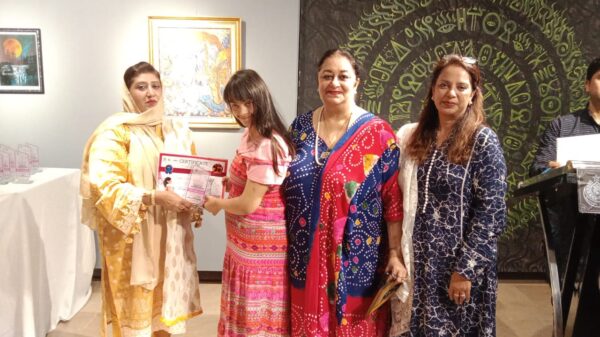On Friday, India began voting in what is considered the largest election in the world. Prime Minister Narendra Modi is seeking an unprecedented third term in office, buoyed by economic growth, welfare initiatives, his popularity, and the espousal of Hindu nationalism.
The electoral contest pitches Modi’s Bharatiya Janata Party (BJP) against a coalition of around two dozen opposition parties, offering promises of increased affirmative action, expanded welfare schemes, and the purported necessity to safeguard democratic institutions from what they portray as Modi’s authoritarian governance.
This monumental democratic exercise, involving nearly one billion voters, will unfold over seven phases across the sprawling nation, concluding on June 1, with votes tallied on June 4.
The inaugural phase witnesses 166 million voters across 102 constituencies in 21 states and territories exercising their franchise, spanning regions from Tamil Nadu in the south to Arunachal Pradesh on the Himalayan border with China, and the populous Uttar Pradesh in the north.
Voters queued outside polling stations well before the crack of dawn amid stringent security measures, with even senior citizens requiring assistance to access the booths.
“Modi will return to power in India because, beyond religious sentiments, his governance, especially in terms of security, has been commendable,” asserted Abdul Sattar, a 32-year-old Muslim voter from Uttar Pradesh’s Kairana.
However, Mohammed Shabbir, a 60-year-old driver and father of eight, highlighted unemployment as his paramount concern, reflecting the sentiments of many who feel the pinch of joblessness.
While Hindu nationalism hasn’t dominated discourse this election cycle, Shabbir remarked, “Even Hindus are grappling with job scarcity.”
Survey data indicates that despite significant apprehensions regarding unemployment, inflation, and rural distress in the world’s fastest-growing major economy, the BJP is poised to secure a comfortable majority. All eyes are on whether the party can surpass its 2019 triumph and by what margin.
“In the next five years, we will propel our nation into the top three global economies, mount a decisive assault on poverty, foster new avenues of growth, unveil next-generation reforms, and undertake numerous pro-people initiatives,” Modi outlined in the BJP’s election manifesto, titled “Modi Ki Guarantee.”
The manifesto and the BJP’s campaign revolve around “Modi Ki Guarantee,” underscoring the unusual leader-centric, presidential-style approach in a parliamentary system.
“I urge all voters to cast their ballots in record numbers,” Modi tweeted before polling commenced, particularly encouraging young and first-time voters to participate actively.
Should he emerge victorious, Modi will become only the second Indian prime minister elected three times consecutively, following post-independence leader Jawaharlal Nehru.
Modi’s leadership has been marked by a focus on economic development, national security, and the promotion of Hindu nationalism. His government and the BJP have faced criticism for alleged discrimination against India’s Muslim minority, although both deny these accusations.
The opposition INDIA alliance contends that this election is a battle to preserve constitutional and democratic principles against the BJP’s perceived authoritarian tendencies.
Rahul Gandhi, leader of the main opposition Congress party, accused the BJP of deflecting attention from pressing issues such as unemployment and inflation.
While the alliance has struggled to present a united front against the BJP, it has accused the government of bias, citing the arrest of opposition figures on corruption charges and tax demands ahead of the election, allegations the government refutes.
Chandrachur Singh, a politics professor at Delhi’s Hindu College, noted the BJP’s advantage but acknowledged real challenges.
“This election is not devoid of issues,” he remarked. “There are grievances that could have translated into anti-incumbency. However, a fractured, fragmented, weak opposition has failed to channel these sentiments, allowing the BJP to surge ahead.”
I am an accomplished graduate of Strategic Studies, driven by a fervent dedication to comprehending global affairs and devising impactful strategies. Equipped with a comprehensive skill set encompassing research, critical thinking, and persuasive communication, I possess a distinctive viewpoint and an unwavering commitment to fostering inclusive decision-making processes. As a versatile individual, I excel in collaborating with diverse groups in various settings, leveraging my strong interpersonal abilities to adapt seamlessly to new environments and surmount any challenges that arise. With a passion for contributing to strategic initiatives, I am eager to leverage my expertise and drive to effect positive change within the field.










